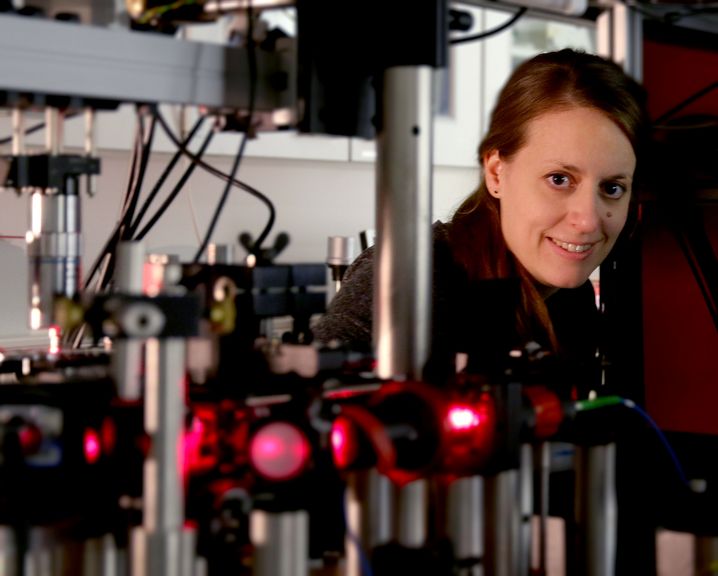Physicist of the Month
Are you a physicist and would like to introduce yourself and your research? Don't hesitate to write to us at chancengleichheit@oepg.at!
February 2026
Sarah Skoff, Group Leader of the Solid-state quantum optics and nanophotonics Group at TU Vienna
About myself and my research
I am the head of the Solid-State Quantum Optics and Nanophotonics group, and my research focuses on quantum emitters that can be integrated into solid-state systems such as two-dimensional materials. These emitters hold great potential for use in emerging quantum technologies. In addition, our research group works with nanophotonic components used for high‑precision sensing.
I spent nearly eight years of my scientific career in England, where I completed my PhD in Physics in 2011 at the Centre for Cold Matter at Imperial College London. After an additional postdoctoral period in the field of “cold molecules,” I moved to TU Wien, where I began working on quantum emitters in solid-state systems. Since 2018, I have been a junior group leader for “Solid-State Quantum Optics and Nanophotonics,” and since 2022 I have been a recipient of the FWF Elise Richter Fellowship, which enabled me to take up an excellence career position.
What can be done to achieve more equal opportunities in physics?
To ensure equal opportunities, the visibility of women in science — both historical and contemporary — should be represented in teaching materials to the same extent as their male counterparts.
Furthermore, balancing family and career remains a challenge in research, one that affects women more for biological reasons, since the time of starting a family often coincides with the crucial phase of establishing oneself in academia. To avoid disadvantaging women and, more generally, all young parents, research funding is needed that specifically supports early‑career parents (regardless of gender), ensuring maximum flexibility in their professional lives.
If you would like to learn more about Sarah Skoff and her work, you can find the link to her team website here, as well as the link to her ORCID profile here.
